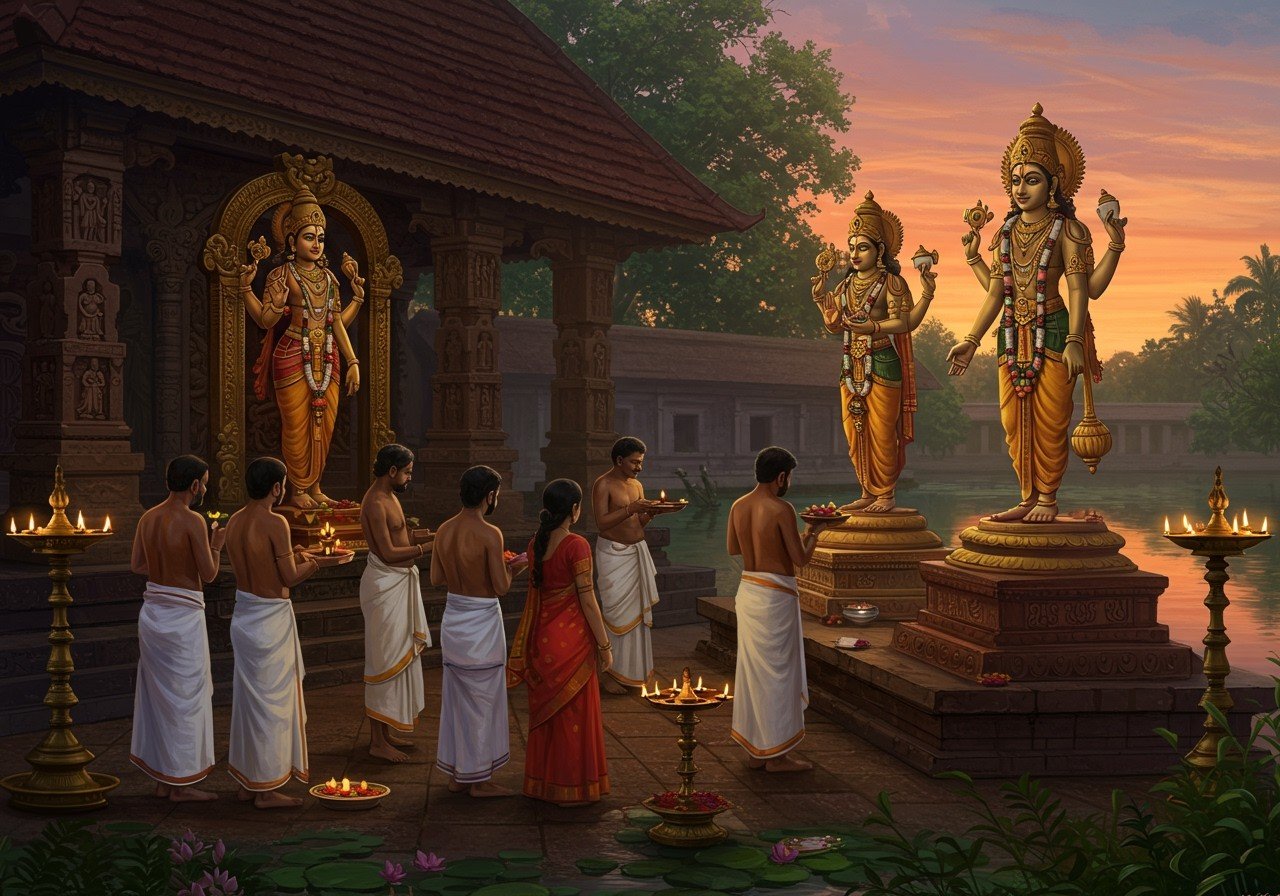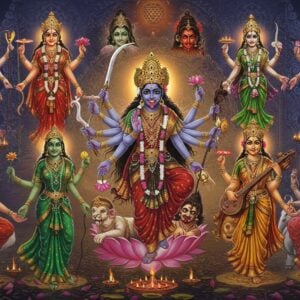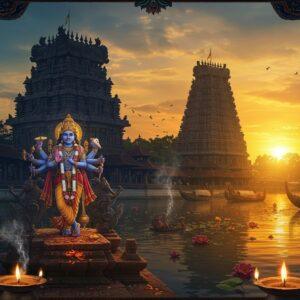
Kerala, fondly known as “God’s Own Country,” is a land where spirituality thrives. It’s a place where diverse faiths like Hinduism, Christianity, and Islam coexist, creating a vibrant tapestry of traditions. This article delves into the spiritual heart of Kerala, exploring the deep devotion, unique rituals, and the everyday spiritual practices that shape the lives of its people. We’ll journey through the significance of the Sabarimala pilgrimage, the life of a Melsanthi (head priest), and the architectural wonders of Kerala’s temples, revealing how these elements contribute to the region’s unique identity.
The Sabarimala Pilgrimage: A Journey of Faith
The Sabarimala pilgrimage is more than just a religious event; it’s a profound spiritual experience that draws millions of devotees annually to seek the blessings of Lord Ayyappa. The 41-day vratham (period of austerity) observed by pilgrims involves strict spiritual and physical disciplines, showcasing their unwavering devotion. This pilgrimage isn’t just a spiritual journey; it also plays a significant role in Kerala’s economy, supporting local businesses and boosting tourism. While the massive influx of pilgrims presents environmental challenges, conscious efforts are being made to ensure sustainability. The pilgrimage is a testament to inclusivity, welcoming people from all walks of life, regardless of caste or creed, fostering a sense of unity and shared devotion.

The Life of a Melsanthi: Guardian of Traditions
The Melsanthi, the head priest of a temple, holds a position of immense respect and responsibility. Their selection is a rigorous process, emphasizing purity, discipline, and deep knowledge of religious rites. A Melsanthi’s day begins before dawn, filled with meticulous rituals and prayers, culminating in the evening aarti. They are the custodians of ancient traditions, ensuring the authenticity of rituals and providing spiritual guidance to the community. Navigating the complexities of balancing tradition with modern expectations is a constant challenge. Even their attire holds symbolic significance, connecting them to the divine during temple ceremonies. In today’s digital age, technology has also impacted their role, allowing them to connect with a wider audience through social media and online platforms.

Architectural Marvels: Kerala’s Temples
Kerala’s temples are more than just places of worship; they are architectural masterpieces that reflect the state’s rich cultural heritage. The sloping roofs, intricate wooden carvings, and vibrant murals are a testament to the skill and artistry of Kerala’s craftsmen. These structures beautifully blend Dravidian and Vedic architectural styles, creating a unique aesthetic. The sanctum sanctorum, namaskara mandapam, and chuttambalam are integral parts of these temples, each holding symbolic meaning. Temples like the Padmanabhaswamy Temple and Guruvayur Temple are steeped in history and legends, adding to their allure. These sacred spaces also serve as cultural centers, hosting festivals, religious discourses, and artistic performances. Preservation efforts are crucial to protect these architectural treasures from the pressures of urbanization and climate change.

Kerala’s Spiritual Diversity: A Tapestry of Traditions
Kerala’s spiritual landscape is incredibly diverse. Hinduism, Christianity, and Islam flourish side by side, each contributing to the state’s rich cultural tapestry. Let’s explore some of the key practices and rituals that define each faith.
Hindu Practices and Rituals
- Pooja: Offering prayers and worship to deities, a practice deeply ingrained in Hindu tradition. This can be a simple act at home or a grand ceremony in a temple, reflecting the devotee’s personal connection with the divine.
- Aarti: The waving of a lighted lamp, accompanied by chanting and singing, creates a serene atmosphere of reverence and devotion. This beautiful ritual symbolizes the offering of light to the divine.
- Havan: A sacred fire ceremony performed for purification and to appease deities. This ritual involves offering various substances into the fire while chanting mantras, invoking positive energies.
- Sadya: A traditional vegetarian feast served on banana leaves, often during festivals and special occasions. This elaborate meal is a celebration of community and togetherness.
- Namajapam: Chanting divine names is a form of meditation and prayer, believed to bring peace and spiritual upliftment. This practice can be done individually or in groups, creating a powerful sense of connection.
- Pilgrimages: Undertaking journeys to sacred sites is a significant part of Hindu tradition. Pilgrimages to Sabarimala, Guruvayur, and Padmanabhaswamy Temple are deeply meaningful experiences for devotees.
- Theyyam & Kathakali: These vibrant art forms blend storytelling, dance, and music to depict ancient myths and legends. Theyyam is a ritualistic dance form, while Kathakali is known for its elaborate costumes and expressive movements.
- Unique Rituals: Rituals like Anthiuzhichil (removing evil spirits), Arathamuzhiyuka (safeguarding newlyweds), Ammakazcha & Appakazcha (exchange of sweets between families), and Ekadashy (fasting and penance) reflect the diverse customs and beliefs within Hinduism in Kerala.
Learn more about the Draksharama Temple, a significant spiritual destination.
Christian Practices and Rituals
- Holy Mass: The central act of worship in Christianity involves prayers, Bible readings, and the Eucharist. This gathering brings the community together in fellowship and prayer.
- Baptism: A sacrament of initiation into the Christian faith, symbolizing spiritual rebirth and cleansing. It marks the beginning of one’s journey as a Christian.
- Communion: Partaking in bread and wine, representing the body and blood of Christ. This ritual signifies unity with Christ and the Christian community.
Muslim Practices and Rituals
- Salat: The five daily prayers, performed facing the Kaaba in Mecca. This practice is a cornerstone of Muslim faith, connecting individuals with God throughout the day.
- Sawm: Fasting during the holy month of Ramadan. This spiritual practice fosters discipline, empathy for those less fortunate, and a deeper connection with God.
- Zakat: Giving a portion of one’s wealth to charity, a fundamental principle of Islam. This act of generosity supports the community and promotes social justice.
- Hajj: The pilgrimage to Mecca, a once-in-a-lifetime obligation for Muslims who are able. This journey is a profound spiritual experience, uniting Muslims from around the world.
Poojn.in: Supporting Your Spiritual Journey
At poojn.in, we understand the importance of having access to authentic ritual items. Whether it’s for your daily pooja, a special ceremony, or a festival, we offer a wide selection of high-quality products, conveniently available online. Our pooja kits are thoughtfully curated to provide everything you need, ensuring a smooth and meaningful spiritual experience. We offer a diverse range of holy idols, jaribooti, and other puja samagri to enhance your spiritual practices.
Embrace the richness of Kerala’s spiritual heritage with the convenience of online shopping. Visit poojn.in today to explore our collection and bring the blessings of tradition into your home.
Frequently Asked Questions
What is the cultural significance of the Sabarimala pilgrimage?
The Sabarimala pilgrimage is a powerful expression of faith and devotion in Kerala. It unites people from all walks of life, fostering a sense of community and shared spirituality. It has a significant cultural and economic impact on the region.
What is the role of a Melsanthi in Kerala temples?
The Melsanthi is the head priest, responsible for conducting daily rituals, maintaining the sanctity of the temple, and guiding devotees. They are the keepers of ancient traditions and play a vital role in the spiritual life of the community.
What makes Kerala’s temple architecture so unique?
Kerala’s temples are architectural marvels, blending Dravidian and Vedic styles. The sloping roofs, intricate woodwork, and vibrant murals are a testament to the state’s rich artistic heritage. Each element of the temple holds symbolic meaning, reflecting the deep connection between architecture and spirituality.
What are some common daily rituals performed in Kerala?
Daily rituals vary across different faiths and traditions. Hindus perform pooja, aarti, and offer prayers to deities. Christians attend Holy Mass and partake in Communion. Muslims offer Salat (prayers) five times a day. These rituals are deeply ingrained in the daily lives of the people.


